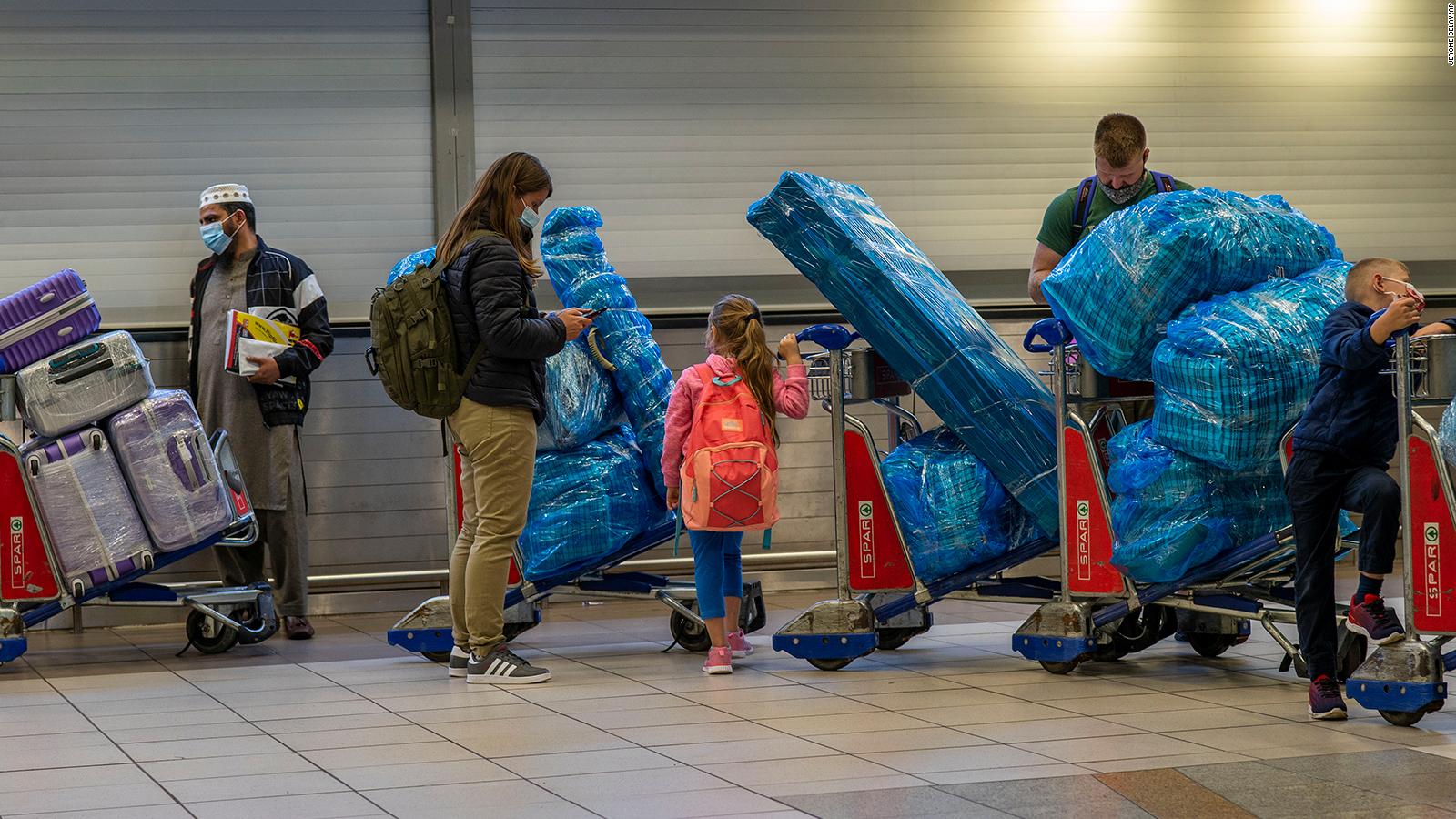New omicron variant: what do we know so far?
1:36
(CNN) -
Dutch health authorities are investigating whether 61 people who traveled from South Africa and tested positive for COVID-19 on Friday were infected with the new and potentially more transmissible variant of the coronavirus known as omicron.
The World Health Organization (WHO) said late Friday that preliminary evidence suggests that the omicron variant, first identified in South Africa, could pose an increased risk of reinfection and said that some of the mutations detected in the variant they were worrisome.
So far, the variant has been found in Botswana, Hong Kong, and Belgium.
The European Center for Disease Prevention and Control said Friday that there was a "high to very high" risk that the new variant would spread in Europe.
GGD Kennemerland, the municipal health service responsible for Amsterdam's Schiphol Airport, said positive test results will be examined as soon as possible.
Those who tested positive were sent to isolation at a nearby hotel, Dutch authorities added.
Effective measures against any variant, according to doctor 1:30
The discovery of the new variant has sparked fears around the world.
Several countries have imposed travel bans and world markets have crashed.
advertising
But while the WHO designated Omicron as a "variant of concern" on Friday, it stressed that more research is needed to determine whether the variant is more contagious, causes more serious disease and could evade vaccines.
"This variant has a large number of mutations and some of these mutations have some worrying characteristics," Maria Van Kerkhove, WHO technical leader for covid-19, said in a statement Friday.
"At the moment there are many studies in progress ... so far there is little information, but those studies are ongoing, so we need the researchers to have time to carry them out and WHO will inform the public, our partners and our member states as soon as possible as we have more information, "he added.
Lawrence Young, a virologist and professor of molecular oncology at Warwick School of Medicine in the UK, said the omicron variant was "very concerning".
"It is the most mutated version of the virus that we have seen to date. This variant carries some changes that we have previously seen in other variants, but never all together in one virus. It also has novel mutations," Young said in a statement.
What is the risk of the new variant of coronavirus called omicron?
1:29
The variant has a large number of mutations, about 50 in total.
Crucially, South African genomic scientists said Thursday that more than 30 of the mutations were found in the spike protein, the structure the virus uses to enter the cells it attacks.
Isolated south africa
The discovery of the variant sparked a new round of travel restrictions around the world, with many countries closing their borders to travelers from various southern African countries.
The United States, the European Union, the United Kingdom, Australia, Japan, Russia, Brazil, Saudi Arabia, Israel, Egypt, the Philippines, Thailand and several other countries have already announced or proposed bans on flights from the region.
Most, including the United States, have restricted travel from South Africa, Botswana, Zimbabwe, Namibia, Lesotho, Eswatini, Mozambique and Malawi.
The South African government has questioned the travel bans, noting in a statement that the African Centers for Disease Control and Prevention "strongly discourages" travel bans for people from countries that have reported the variance.
"During the duration of this pandemic, we have observed that imposing bans on travelers from countries where a new variant is reported has not produced a significant result," the statement said.
Scientists have praised South African health authorities for their quick reaction to a COVID-19 outbreak in the country's Gauteng province, which led to the discovery of the new variant.
When cases in the province began to increase at a higher rate than elsewhere, health experts focused on sequencing samples from those who tested positive, allowing them to quickly identify variant B.1.1.529.
What we know so far about omicron, the new variant of coronavirus discovered in South Africa
Peacock said the South African Ministry of Health and its scientists "should be applauded for their response, their science and for raising the alarm to the world."
He added that the development shows how important it is to have excellent sequencing capabilities and to share experience with others.
That message was reinforced by the WHO, which on Friday asked countries to improve their surveillance and sequencing efforts to better understand the variants of the coronavirus.
But Dr. Richard Lessells, an infectious disease specialist at the University of KwaZulu-Natal in Durban, said South Africa was being "punished" for its transparency and ability to detect the variant quickly and flag the problem to international health authorities.
"What I found disgusting and really distressing ... was not just the travel ban implemented by the UK and Europe, but that was the only reaction or the strongest reaction. There was no word of support saying they were going to offer it helps African countries to control the pandemic, "he told CNN.
CNN's Martin Goillandeau, David McKenzie, Ghazi Balkiz, Laura Smith-Spark, Sharon Braithwaite, Antonia Mortensen, Tim Lister and Lauren Lau contributed reporting.









